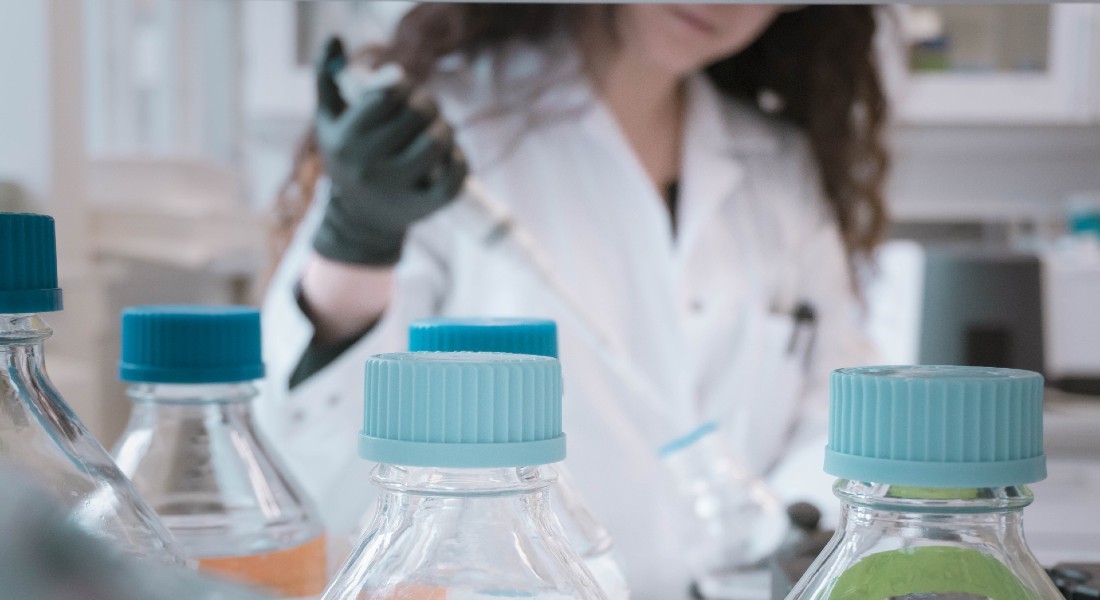Strengthened research on treatments for skin disease at the University of Copenhagen
The LEO Foundation Center for Cutaneous Drug Delivery at the Department of Pharmacy at University of Copenhagen has been awarded a grant of DKK 15 million from the LEO Foundation for research on how drug uptake through the skin can be improved in order to improve efficacy of treatments of skin disease.

When we apply a pharmaceutical on the skin, its uptake is difficult due to the efficient barrier function of skin, which is a key feature of its biological function. Incomplete drug uptake frequently reduces the effect of the drug, which is a major problem in the treatment of skin diseases, such as atopic dermatitis and psoriasis.
The Department of Pharmacy now strengthens its research on how drug permeation through the skin can be enhanced for improved treatment outcome. This is enabled by a grant of DKK 15 million from the LEO Foundation. The new funding adds to the previous grant for the LEO Foundation Center for Cutaneous Drug Delivery at the Department of Pharmacy, amounting to DKK 40 million over a 10-year period. The new grant will be used to fund research and training of young researchers in 7 coordinated PhD projects.
- The new grant boosts ongoing research in the center, and will allow us to take a big step in the direction of understanding how we can make pharmaceutical formulations against skin diseases work better though improving their skin uptake. It is an outstanding opportunity to work focused in this direction, says Martin Malmsten, Director at the LEO Foundation Center for Cutaneous Drug Delivery at the Department of Pharmacy, University of Copenhagen.
A physoicochemical approach for improved therapeutics
All 7 PhD projects focus on how pharmaceutical products can be designed for improved skin permeation of drugs, based on physicochemical approaches related to permeation driving forces, skin hydration, and solubilization of skin lipids.
Through this, the research addresses how processes regulating the transport of molecules through the skin can be overcome through rational design of drug formulations, so that pharmaceuticals are efficiently taken up after administration of, e.g., an ointment or a cream to the skin. Coupled to such physicochemical studies, the research also addresses biological consequences of improved skin uptake, e.g., relating to treatment efficacy and side-effects of the drug and of formulation components.
- The research focuses on pharmaceuticals that the patients can administer themselves at home, in particular within infection and inflammation. The aim is that the research should provide knowledge that can be used to develop improved pharmaceutical products which can contribute, e.g., to combatting severe infections or dampen or prevent recurring inflammation, which characterizes both atopic dermatitis and psoriasis, and makes the handling of the disease difficult for the patient, says Martin Malmsten.
A focal point for international research
The LEO Foundation is one of Denmark’s largest commercial foundations and owner of the pharmaceutical company LEO Pharma. The Foundation’s main objective is to ensure the company’s long-term development and success as a global leader in dermatology, delivering outstanding results. Besides the ownership, the Foundation provides philanthropic grants with the aim to support the best international research in skin diseases and make Denmark a global beacon for skin research.
Chief Grant Officer at the LEO Foundation, Ida Brams, is looking forward to following the center’s strengthened research efforts.
- At the LEO Foundation we are happy to support the LFCCDD’s efforts to understand and overcome the skin barrier and the processes relevant for efficient and safe drug delivery through the skin. By building on existing research activities, expertise and strengths, the center has great potential to become an international focal point for drug delivery research, she says.
